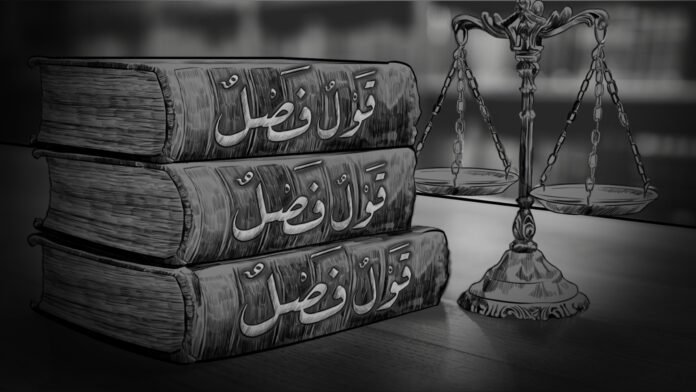The weekly electronic magazine Qawl Fassel launched its first issue on April 7, 2024. The first month covered eleven sections, exploring various topics and moving between local, Arab, and international issues.
The magazine’s editorial treatment includes narrative storytelling that deepens the reader’s understanding of the featured articles on its website and social media platforms. It is accompanied by creative direction that highlights the different themes of each article through graphic design and visually appealing animations.
First Week
The magazine highlighted in its first week three articles about the legal and rights aspects in the sections on traffic, Islamic studies, and United Nations International Days.
The magazine devoted an article titled Persons with Disabilities Conquering Their Rights to Drive. Media specialist Huda Mohammed highlighted Qatar’s role in legislating traffic laws concerning people with disabilities. She interviewed Hussein Al-Haddad, a member of the Qatar Paralympic Committee, who stated that “the true disability lies in the society’s failure to empower people with disabilities, while disability as a trial is a fate that we should accept and deal with.”
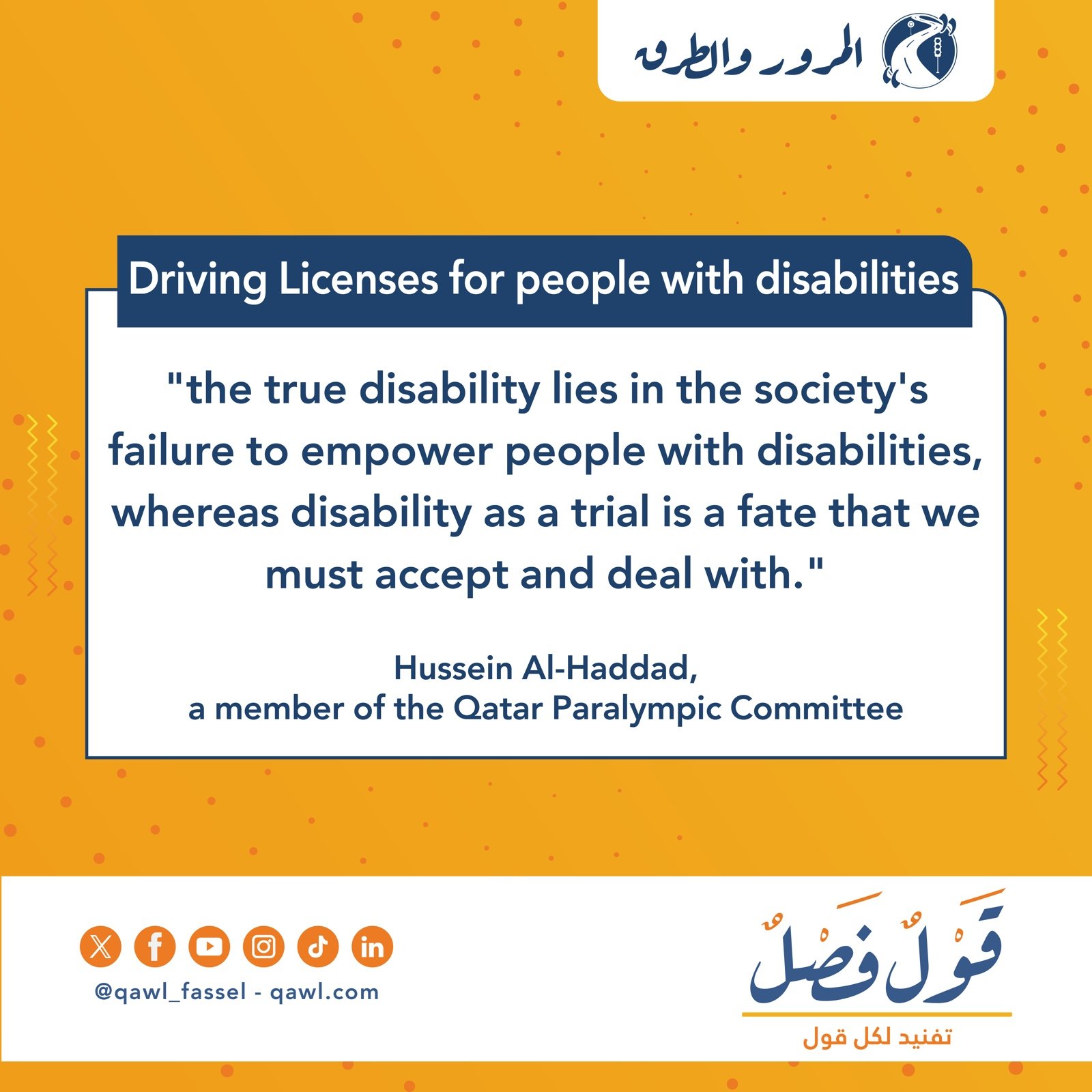
In the section on Islamic studies, the magazine introduced a contemporary jurisprudence titled The Obligatory Bequest: necessity or choice? In it, the writer Ahmad Okbelbab shared his personal experience, then proceeded to define the obligatory bequest, clarifying its validity and the circumstances related to its rationale. He compares it to the optional bequest, discusses its relation to the estate, and noted that all Arab countries have gradually adopted it, except for Qatar and Saudi Arabia, up to the time of writing the article.
In its first week, the magazine discussed intellectual property rights, which the United Nations has designated April 26 as a global day on its calendar. Linet Baraka highlighted the laws and regulations related to this issue in her article The World Intellectual Property Day (WIPD). She then outlined a set of points necessary for raising awareness about these rights and how to protect them.
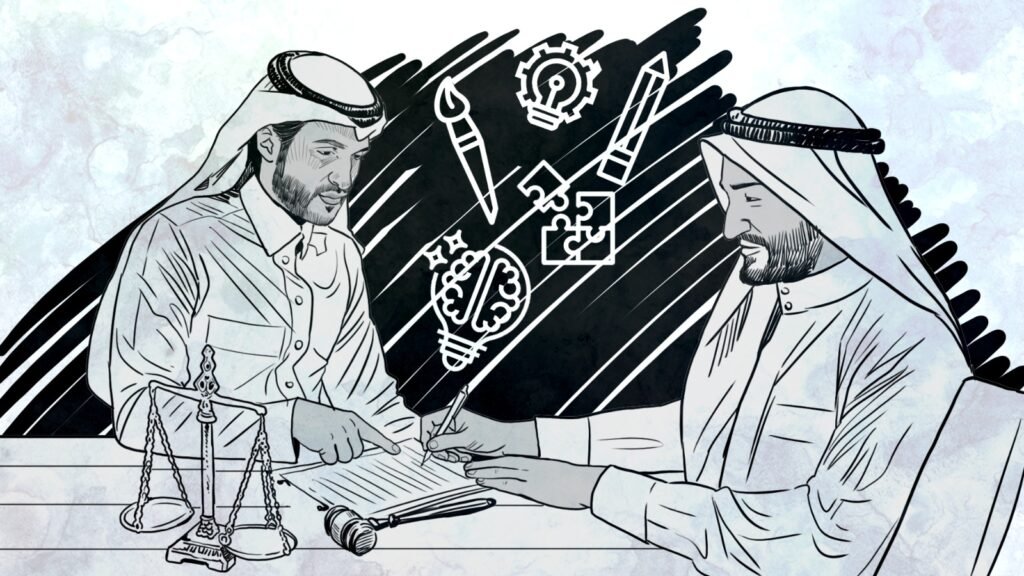
Huda Mohammed explained how the magazine selects its topics, which “aim to highlight the legal and legislative aspects hidden from the general readers who are not specialists, through enjoyable narrative storytelling and objective, critical analysis.”
Second Week
Three more articles published in the second week of Qawl Fassel discussed various other topics in the sections on history, courts and judiciary, and crimes.
The article titled Ali is a Judge: The Contribution to Laying the First Blocks for the Judicial Institution in Islam by Mohamed Shaaban Ayub, centred on the fourth Rightly Guided Caliph, emphasized his exceptional talents and capabilities as a jurist, scholar, and judge.

In the courts and judiciary, the writer Yousif Al Hamadi took us back to the beginnings of courts in the Islamic world during the Ottoman era and how Latin systems and legislations were integrated with the existing Islamic jurisprudential heritage. He dedicates a significant portion of his article to the evolution of the judicial system in Qatar, as reflected in his title, Highlights on the History of the Qatari Judiciary, from the end of the 20th century until the establishment of the judicial courts in 1972.
In the crime section, the magazine published an analytical article titled The Influence of Crime Fiction: Its Journey from Novel to Cinema and Social Media Platforms The article discussed the role of literature in inspiring crimes from reality or from the imagination, serving as raw material that has historically been woven into stories and narratives by Arab and international writers. Some of these have been adapted into television or cinematic productions.

Mohamed Elgazaly stated, “One of the main objectives of the Qawl Fassel is to raise awareness and spread legal culture. My article in the crimes section revolves around the same goal, but this time from a different monitoring angle. I take the reader on a journey to observe the public’s reactions as they watch or read these literary and artistic works.”
Third Week
The magazine devoted its third week to social issues that concern everyone in the sections on women, children, and law.
In the section on children, Okbelbab addressed a central issue affecting children whose parents are separated, describing the situation in the article titled Children of Discord: The Internal Bleeding Between Khula’ and Divorce. He pointed to the double standards in Arab family law legislation and their adverse effects on all family members.
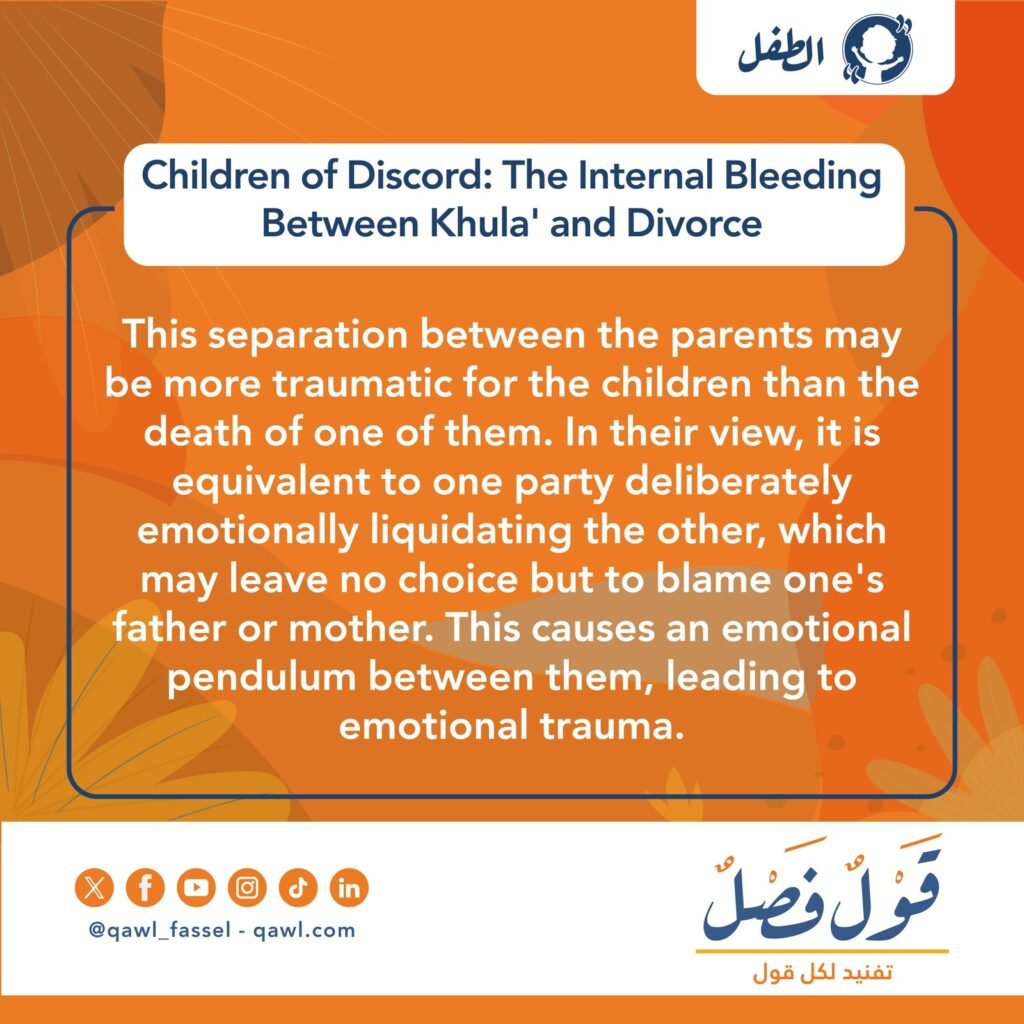
In the section on women, the magazine addressed the issue of Women’s Rights under Polygamous Laws, which the writer Yasmeen Anber discussed objectively and comprehensively. She presented supporting and opposing viewpoints, noting the variation in laws related to the topic across the Arab world.
In the law section, the magazine published an article titled The Reality of the Expressive Tongue Between Marginalization and Regulation, covering various aspects of the Qatari law for protecting the Arabic language. The article’s author, media specialist Dr Shady Elsayed, compared this law with the Algerian Arabization law issued in the 1950s, questioning whether laws alone are sufficient to address the matter or if they will merely remain ink on paper.
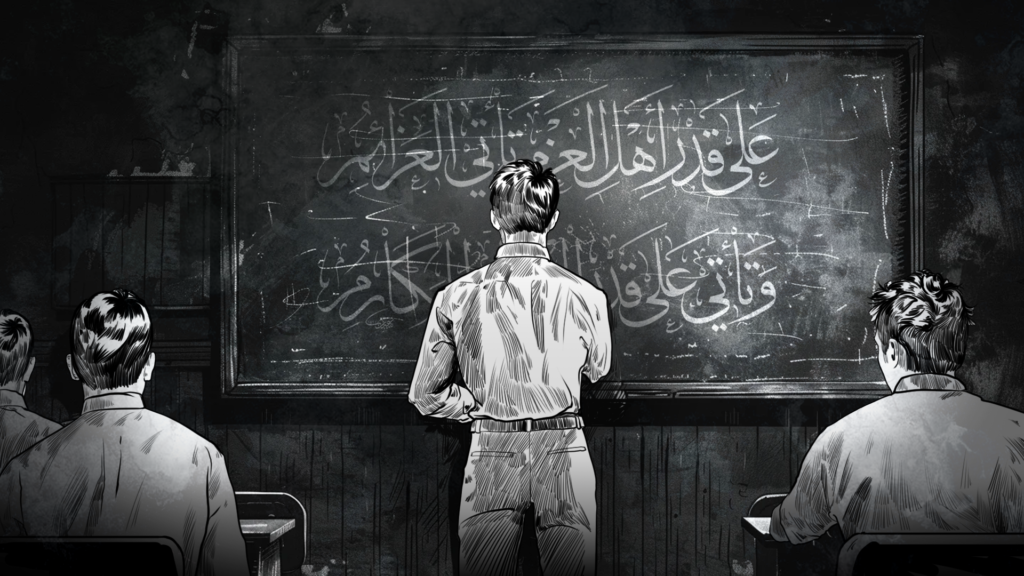
Okbelbab stated, “It was important to address sensitive issues related to the family, which significantly impact Arab societies. The family is the core, and the child is the future from which the future of upcoming generations emerges. Therefore, it is essential to prioritize them.”
Forth Week
The magazine completed the publication of its first month’s articles with two pieces, one in the expatriates section and the other in the local section.
In the local section, Yousif Al Hamadi’s article Qatar’s Constitutional Milestones: From Drafting to Implementation served as a good summary that allows non-specialists to understand the role and importance of the constitution in principle in a narrative form. It includes his dialogue with Dr Hassan Al-Sayed, a professor of public law at Qatar University. The article also briefly and comprehensively covers all the sections, chapters, and articles of the Qatari Constitution.
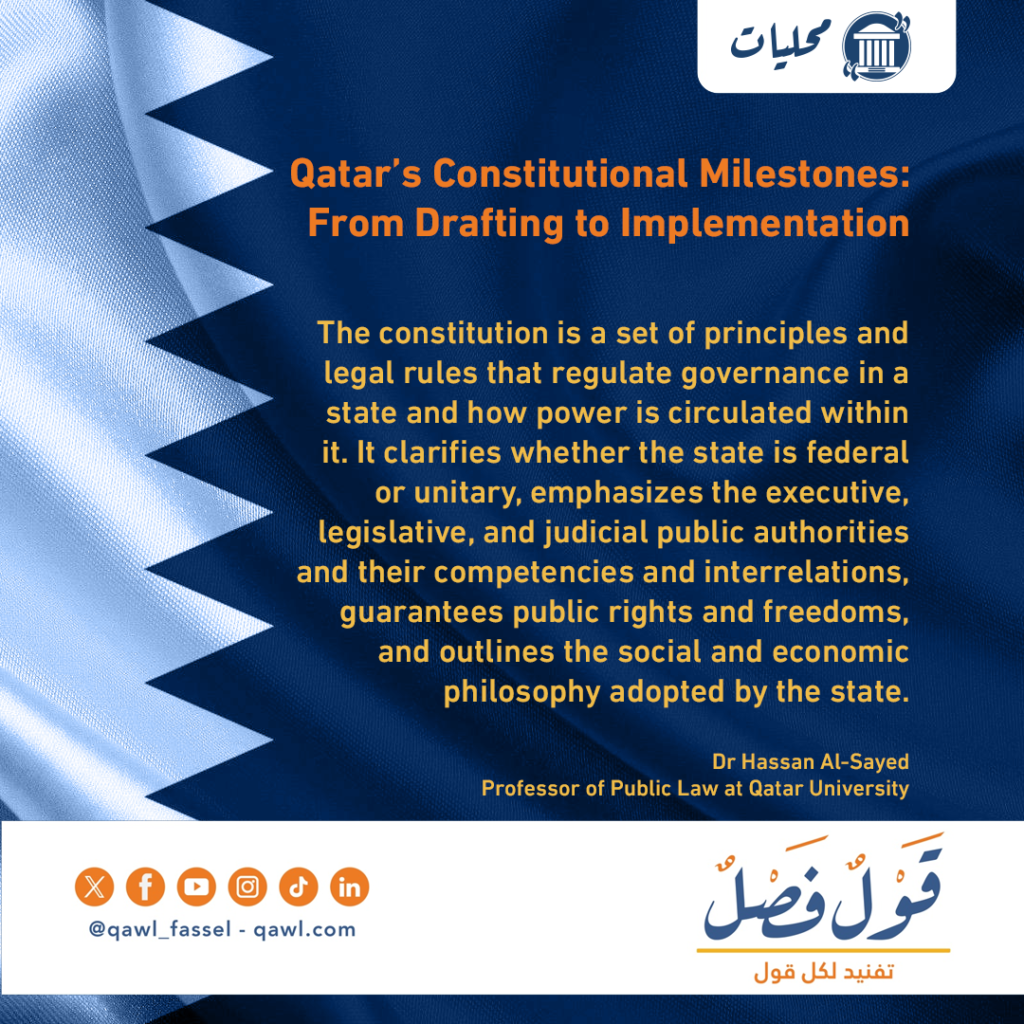
In the section on expatriates, the writer Rand Saad presented an article titled Sponsorship From To,she discussed the significant reforms made to the expatriate labour laws in the Gulf countries. It is particularly relevant as the West has launched vehement defamation campaigns against these countries, which later became purely for Western political and economic purposes. Consequently, the writer aimed to expose the falsity of these accusations by comparing the demographic distribution of immigrants in the Gulf countries to their European counterparts. What was astonishing in this comparison was the racial discrimination inherent in Western laws and the xenophobia promoted by their media that claims to champion freedom.
Dr. Hassan Al-Sayyed praised Qawl Fassel’s role, saying, “The first step to elevating constitutional principles is understanding their concepts and believing in their importance. What you do by spreading legal awareness and culture significantly contributes to achieving that.”
Qawl Fassel is unique in its kind, as it takes on the responsibility of simplifying complex concepts related to laws, legislation, rights, and duties. This effort aims to bridge the gap, overcome obstacles, and satisfy the needs of both the general public and specialists, serving as a digital media platform that provides, discusses, and facilitates these concepts smoothly for everyone.




